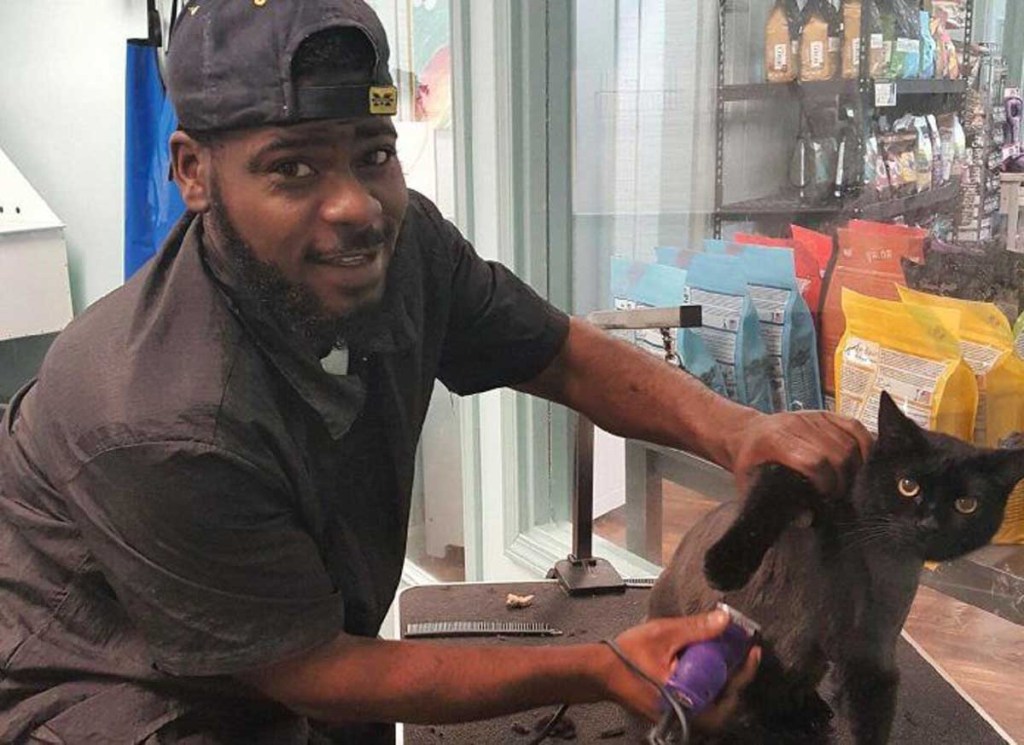Gig worker’s tale: Economy craters, but Georgia pet groomer hopes to land on feet
Published 9:59 am Thursday, May 21, 2020

- JD Harrison has been struggling to get by since COVID-19 has kept Georgians away from non-essential services like pet grooming. Thursday's jobless report from the U.S. Department of Labor will provide a new count of out-of-work Georgians.
Monday was JD Harrison’s birthday, but he didn’t have much cause for celebration.
“I’m not getting by, realistically speaking,” he said. “I don’t want to embarrass myself, but I’m not getting by.”
At the start of the year, Harrison was making $8,000 to $12,000 a month between his Smyrna-based mobile dog grooming business, Perfect Paws, and driving for Uber and Lyft on the side.
Now, he said he’s making closer to $4,000, and his payments come from the Georgia Department of Labor.
Harrison is one of nearly 1.8 million Georgians to apply for unemployment since COVID-19 began shutting down businesses in March.
That grim toll increases every Thursday lately, when the U.S. Department of Labor releases Georgia’s weekly jobless reports, documenting the worst economic downturn since the Great Depression.
Harrison said he started to notice business slowing down in late February, but calls came to a complete stop in March, around the same time pink slips began going out en masse across Georgia. During the week ending March 21, the number of Georgians filing new unemployment claims more than doubled.
“Business was so slow in March that eviction was inevitable,” Harrison said. “Between February and March, business was just insanely, ridiculously slow.”
That initial wave of layoffs was felt most intensely by workers in the restaurant, convention and hospitality industries, all of which are major components of Georgia’s economy. Now layoffs are spread much more widely, affecting office workers and manufacturers. On Tuesday, 300 employees of the Czarnowski marketing firm in Austell were added to the state’s Business Layoff/Closure Listing website. Atlanta’s Cox Automotive just announced it plans to furlough 12,500 workers this month.
Harrison applied for unemployment benefits in March, but at that time, the state Department of Labor was not set up to pay benefits to gig workers and independent contractors like him. That only became possible after the president signed the federal CARES Act in late March.
“The state of Georgia unemployment basically said, ‘OK, gig workers, we don’t have the system set up for you, we’re making it from scratch, so just accept holding on until April 22. You’ll be sent an email if you were denied unemployment for pandemic unemployment.’”
That’s what happened for Harrison – he said he got his email around April 22.
“After that, it took maybe two weeks for everything to get started to go through, but just think of having a 70% income drop from mid-February to April,” he said.
With scarcely any money coming in, Harrison lost his Atlanta apartment. He’s temporarily staying at an Airbnb until he can arrange something permanent.
Harrison said he’s not even trying to drive for Uber and Lyft right now because he does not want to risk getting sick. He’s still accepting clients for pet grooming, but finding few takers. Georgia’s close-contact businesses were among the first to reopen as part of Gov. Brian Kemp’s recovery plan, but not many Georgians are making a pets’ hair styling a high priority, Harrison said.
“Grooming, I can pretty much control. I can control what clients I see, when, what kind of contact I have with them,” he said. “But if they don’t have the money to afford the luxuries us Americans love to say we have, when we can’t afford the luxuries, the people that provide the luxuries go out of business.”
Harrison is one of nearly 886,000 Georgians who filed continuing claims in the most recent reporting period, about 17% of the state’s March civilian labor force.
Continuing claims follow the first week of unemployment coverage, and they are a good measure of the state’s economic recovery, said Rajeev Dhawan, director of the Georgia State University Economic Forecasting Center.
“They tell you the extent of the labor market damage that is going on,” Dhawan said. “People on continuing claims means they’ve been unemployed and they’ve been getting the insurance, they haven’t found a job and they haven’t been recalled if they’ve been furloughed. That tells you the ongoing damage.”
Speaking at a press conference following the release of last week’s numbers, Georgia Labor Commissioner Mark Butler predicted more bad news to come.
“I have a gut feeling when you see the numbers that are coming after this week, it’s going to be startling,” he said. “You’re going to probably see us eclipse the $3 billion mark, for the monies that we’ve sent out to help people here.”



